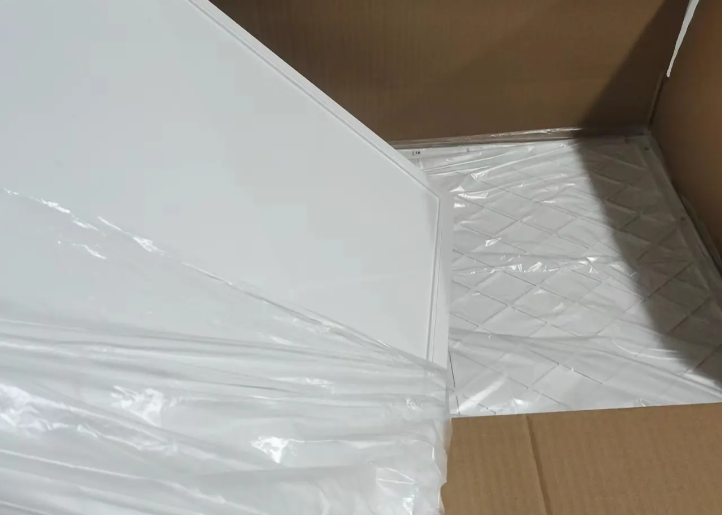Automotive Industry Applications of Custom Injection Molded Products
Interior Components: Door Handles & Dashboards
Custom molded injection products are critical for the production of a vehicle's interior components including something as simple as a door handle or as complex as the dashboard. These components are not only aesthetically pleasing but functional, helping to improve the user experience and the look of the vehicle. Complex design and ergonomic features are made possible with injection molding, critical in meeting automotive design standards for comfort and safety. Furthermore, the materials which are utilized in such molds are chosen for long life, so that they endure in any kind of severely severe environmental condition and prolong the life and quality of the vehicle interior.
Exterior Parts: Bumpers & Grilles
Custom injection moulding plays an important role in the manufacturing of exterior products including bumpers and grilles for vehicles. This is an important step in creating light weight parts, which help in reducing weight of vehicle and fuel consumption. The resulting parts fit to perfection and the finish is of the highest quality: a must when meeting aesthetic and practical requirements of vehicle wrapping. It is only in recent years that new injection molding methods have made it possible to incorporate a reinforced material to increase impact resistance, to meet the more stringent and full range of safety requirements in the automotive industry.
Medical & Healthcare Sector Innovations
Surgical Instruments & Disposable Tools
Custom Injection Molded Products are essential in creating surgical instruments and disposable medical equipment in order to deliver a quality product as well as to maintain the cleanliness our patients deserve. All these instruments are designed to improve surgical accuracy and speed, which in turn would allow the development of minimally invasive techniques. Employing medical grade plastics, these items are manufactured in compliance with strict health standards for proper patient safety and operational.Rest assured, you can experience the value such quality construction can make. Injection molding is also a preferred method for manufacturing high-volume, disposable medical devices that require consistent, high-durability performance in emergency medical situations.
Medical Device Housings & Lab Equipment
Molded medical device housings are essential to protect in-risk medical equipment, while still focusing on being lightweight and portable. The method permits the manufacture of complex geometries and features suited to specific functions, such as handles that are ergonomically designed for comfort during use. Injection molding also allows for quick and scalable manufacturing, which is essential in meeting the precision requirements necessary for intricate lab equipment. This flexibility in design is important as healthcare providers continue to call for strong, yet flexible systems that are responsive to changing technological developments and protocols.
Consumer Goods & Electronics Manufacturing
Household Items: Storage Containers & Kitchenware
The effect on everything from storage containers and kitchenware to everyday household products has been remarkable. One of the great advantages of custom injection molding is that manufacturers can meet the needs of their customers with a broad range of designs or aesthetics and functionality. The fact that these aprons come in different materials mean that they cater to different needs of those who want to ensure food safety as well as those looking to up the ante on presentation. In addition, development of mould design has been more mature to optimize mold make process, which could save cost and time effectively and provide more competitive cost and delivery time to both of manufacturer and user.
Electronics Casings & Connector Components
Custom injection molding is an important part of the electronics manufacturing process, as it supplies protective casings and connections necessary for fragile internal parts. The accuracy of form made possible by injection molding is particularly appropriate for producing the very defined shapes required for today’s modern electronic products, thereby improving both their functionality and visual appeal. Furthermore, the trend towards lighter and more robust materials is facilitated by injection molding, as portable and durable electronics can be manufactured. This progress is increasingly important as the field moves toward electronic devices that are smaller and more efficient.
Packaging Industry Solutions
Food & Beverage Containers
Custom injection molded products are essential in the food and beverage industry for the creation of sound packaging applications. These items guarantee protection, freshness, high health standards, which make them important to the packaging industry. The fact that the molded containers are light-weight saves transportation and minimizes greenhouse gases, and hence it further benefits both the manufacturer and consumer. Thanks to developed molding technologies, the market has now experienced the transition to biodegradable and compostable materials which respond to the increasing need for green packaging solutions. These technologies are not only green but improve the branding of companies that adhere to eco-friendly policies.
Tamper-Evident Pharmaceutical Packaging
Custom injection molding is key to tamper-evident packaging for the pharmaceutical industry, protecting consumer safety and product integrity through trust in the brand. These unique molds are designed to be the most reliable on the market by including security features such as security bars and smooth, rounded borders. With the accuracy of injection moulding and the ability to produce quickly, a requirement for pharmaceutical companies who need to adapt quickly to the high pace of the market! This ability not to just get quality products to consumers but also to keep the quality and safety of the medicine and work wonders in the interest of the health of the patient and pharmaceutical compliance too.
Aerospace & Defense Applications
Lightweight Aircraft Interior Components
On the other hand, in aerospace, custom injection molded parts are crucial in the production of weight saving interior parts which are important for fuel savings. These cranks are manufactured from composites that combine high performance with low weight, which is essential for efficient aerodynamics. Also, the moldings produced for these parts are engineered to the exact same specifications as the original parts and to stringent quality standards. This level of precision is demanded by the aviation industry to ensure safety and performance, highlighting their importance.
Durable Military Equipment Parts
Custom Injection Molding for Military With the wide range of products used in the military, on an average custom molding product is essential in maintaining the durability and performance in harsh conditions. It’s fast manufatured for their spontaneous and ever changing demand in field of military operations. Unique materials are selected for their capacity to withstand chemicals, moisture and temperature extremes, to provide optimal performance. This flexibility and durability increase the reliability of weapons systems, and it performs its function with the utmost efficiency for defense operations.
FAQ
How Can Custom Injection Molding Help Reduce Production Costs?
Custom injection molding lowers production expenses through efficient production processes and reduced material waste. It provides high precision, fast throughput processing that can mould a range of large-scale complex parts, reducing labour and lead-time when accommodating smaller production runs. In addition, advances in mold technology have improved production efficiency – resulting in increased savings for manufacturers.
What are the advantages of using injection molded products in the automotive industry?
Injection molded products in the automotive industry offer numerous advantages such as lightweight yet durable components that enhance fuel efficiency and vehicle performance. These products can meet stringent aesthetic and functional standards, improving both the look and safety features of automotive products.
How does custom injection molding contribute to sustainability?
Custom injection molding contributes to sustainability by enabling the use of biodegradable and recyclable materials in production. This reduces environmental impact and aligns with eco-friendly practices, enhancing brand image for companies committed to sustainable development.

